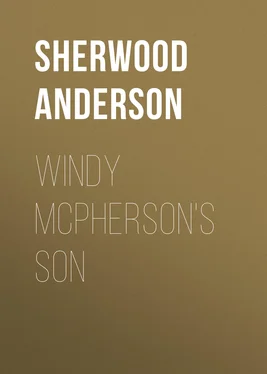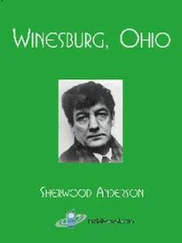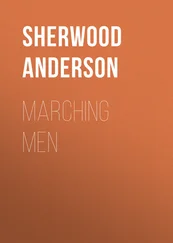“She has been the most wonderful woman in the world,” he told himself and tears of happiness came into his eyes at the thought of his friend, John Telfer, who in bygone days had praised the mother to the newsboy trotting beside him on moonlit roads. Into his mind came a picture of her long gaunt face, ghastly now against the white of the pillows. A picture of George Eliot, tacked to the wall behind a broken harness in the kitchen of Freedom Smith’s house, had caught his eye some days before, and in the darkness he took it from his pocket and put it to his lips, realising that in some indescribable way it was like his mother as she had been before her illness. Freedom’s wife had given him the picture and he had been carrying it, taking it out of his pocket on lonely stretches of road as he went about his work.
Sam went quietly around the house and stood by an old shed, a relic of an attempt by Windy to embark in raising chickens. He wanted to continue the thoughts of his mother. He began recalling her youth and the details of a long talk they had held together on the lawn before the house. It was extraordinarily vivid in his mind. He thought that even now he could remember every word that had been said. The sick woman had talked of her youth in Ohio, and as she talked pictures had come into the boy’s mind. She had told him of her days as a bound girl in the family of a thin-lipped, hard-fisted New Englander, who had come West to take a farm, and of her struggles to obtain an education, of the pennies saved to buy books, of her joy when she had passed examinations and become a school teacher, and of her marriage to Windy—then John McPherson.
Into the Ohio village the young McPherson had come, to cut a figure in the town’s life. Sam had smiled at the picture she drew of the young man who walked up and down the village street with girls on his arms, and who taught a Bible class in the Sunday school.
When Windy proposed to the young school teacher she had accepted him eagerly, thinking it unbelievably romantic that so dashing a man should have chosen so obscure a figure among all the women of the town.
“And even now I am not sorry although it has meant nothing but labour and unhappiness for me,” the sick woman had told her son.
After marriage to the young dandy, Jane had come with him to Caxton where he bought a store and where, within three years, he had put the store into the sheriff’s hands and his wife into the position of town laundress.
In the darkness a grim smile, half scorn, half amusement, had flitted across the face of the dying woman as she told of a winter when Windy and another young fellow went, from schoolhouse to schoolhouse, over the state giving a show. The ex-soldier had become a singer of comic songs and had written letter after letter to the young wife telling of the applause that greeted his efforts. Sam could picture the performances, the little dimly-lighted schoolhouses with the weatherbeaten faces shining in the light of the leaky magic lantern, and the delighted Windy running here and there, talking the jargon of stageland, arraying himself in his motley and strutting upon the little stage.
Конец ознакомительного фрагмента.
Текст предоставлен ООО «ЛитРес».
Прочитайте эту книгу целиком, на ЛитРес.
Безопасно оплатить книгу можно банковской картой Visa, MasterCard, Maestro, со счета мобильного телефона, с платежного терминала, в салоне МТС или Связной, через PayPal, WebMoney, Яндекс.Деньги, QIWI Кошелек, бонусными картами или другим удобным Вам способом.












